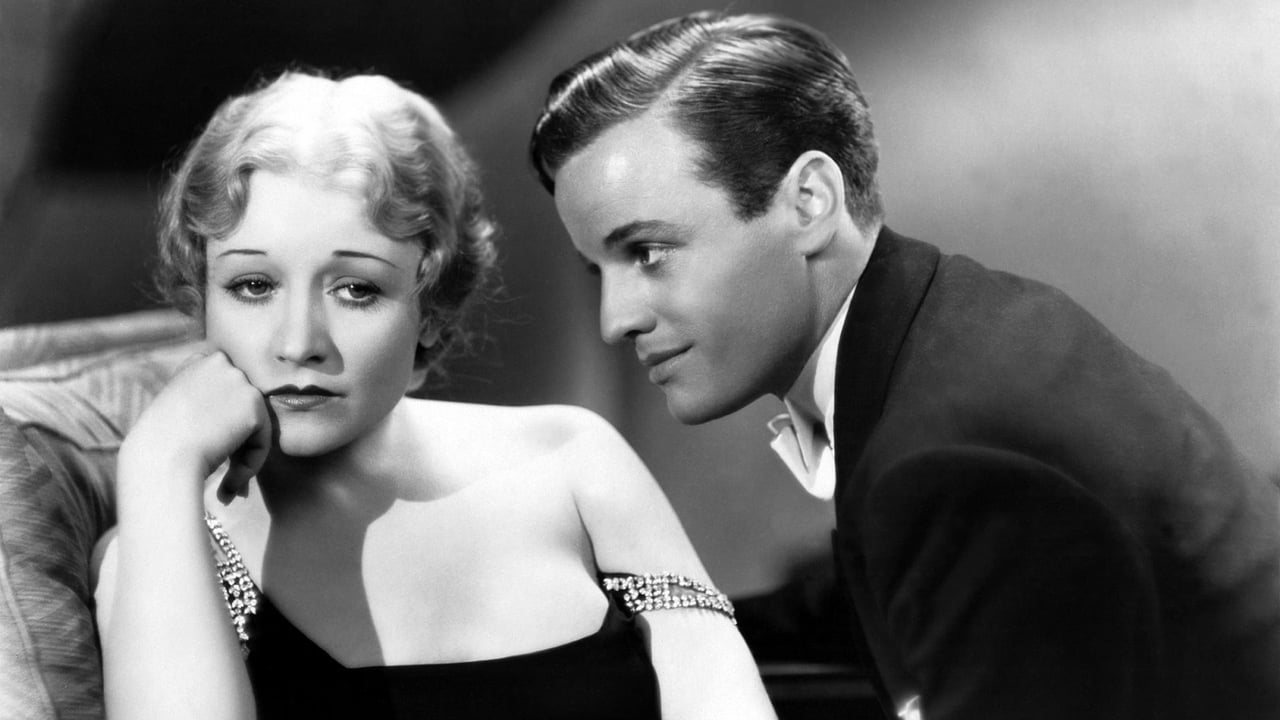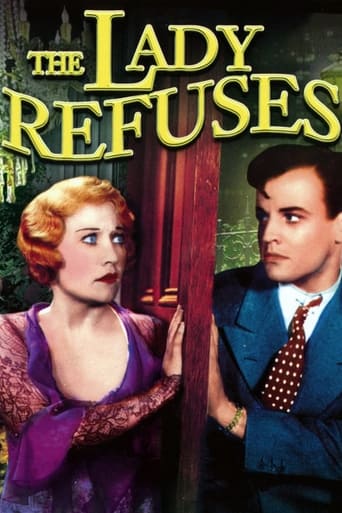

Surprisingly incoherent and boring
... View MoreA bit overrated, but still an amazing film
... View MoreOne of the most extraordinary films you will see this year. Take that as you want.
... View MoreThe tone of this movie is interesting -- the stakes are both dramatic and high, but it's balanced with a lot of fun, tongue and cheek dialogue.
... View MoreI saw this film on YouTube and was rather impressed by it. The adult themes of the interesting story held my attention, but what really sold me was, to me, the always-good Betty Compson, an actress whose heyday was in the silent films, and though she couldn't sing or dance, became quite popular in the early talkie days by virtue of the fact that she not only had a fine speaking voice, but she could really act. She's just fine playing the street girl with the heart-of-gold here, and the story and settings are good as well. If I can fault the production, it's in the fact that, despite being set in London, no one (save for Daphne Pollard) speaks with anything like a British accent. I chalk this up to it's "early talkie" status and the fact that, perhaps in those days, the producers weren't sure that a genuine British accent would go over with a "Yank" audience. The theme music over the opening and closing credits is "My Dream Memory", from Betty's 1929 picture, Street Girl. In that picture, Betty did her own playing on the violin of that song.
... View MoreThis film isn't particularly outstanding in so many ways. Some of the acting and plot elements were rather pedestrian (at best) and the plot is very hard to believe, but despite all this I actually enjoyed the film more than my score of 6 might indicate. That's because this is a "Pre-Code" film (actually, this term should be "Early-Code") and I find these films VERY entertaining relics from our past. The Hays Office was created in the 1920s to enforce morality and decency in the film industry, but it was still in its early days and studios routinely ignored it until the stronger "Production Code" was adopted in 1935. Up until then, films were often amazingly risqué and adult--even by today's standards. A few examples of the things that led to the Hays Office being created and strengthened were: --The 1920s version of BEN HUR, in which there was quite a bit of nudity and violence--and this was a Biblical Epic! --The film PARACHUTE JUMPER includes a scene where Frank McHugh is hitchhiking. When a car passes without stopping, his thumb instantly becomes a middle-finger! --In BIRD OF PARADISE, TARZAN THE APE MAN and THE BARBARIAN, there were some very explicit bathing scenes in which you see a lot of Delores Del Rio, Maureen O'Sullivan and Myrna Loy! While THE LADY REFUSES doesn't include nudity, it is definitely a "Pre-Code"-style film because of the very adult themes. The leading lady (Betty Compson) plays a prostitute "with a heart of gold" who is hired by a man to seduce away his son from a "gold-digger"! And, later both the son AND father fall for this prostitute and want to marry her! Oddly, however, the words 'prostitute', 'hooker' nor any of the other slang terms for the profession are used in the film--though it's very clear that this is Ms. Compson's job. In addition to this adult aspect of the film, the son twice spends the night in Ms. Compson's bed and everyone in the film THINKS that they were fornicating (though they weren't). Such innuendo NEVER would have been tolerated just a few years later.Now despite all these sleazy elements, the movie itself is pretty entertaining and well-made--and definitely kept my interest. Ms. Compson was a dandy actress in the film and it's sad her career as a talking picture leading lady slowly fizzled. As for John Darrow and Gilbert Emery, they both were pretty poor at times--having some trouble with their lines and occasionally over or under-acting. It wasn't bad enough to severely hinder the film, but it was noticeable if you were paying close attention.The bottom line is that for fans of the "Pre-Code" films or film buffs, this is a MUST-SEE film. For most others, it's a time-passer or eminently one you can skip.
... View MoreTalky early talkie can't rise above its theatrical roots. Betty Compson is far too old (36 when this movie was released) and American to pass herself off as a Londoner fallen on bad times who can be hired to seduce rakehell John Darrow (who seems to know better than to attempt an English accent). Gilbert Emery is best in a stiff-upper-lip performance enhanced by his remarkable vocal and physical similarity to Stephen Fry. But this tale of a woman saved from the London streets so she can save the son from making the wrong choice is marred by blurry details, as if most of the story has taken place out of frame. What story remains moves slowly, and holds tight to its stereotypes of upper classes, comic butlers, loose women, and sneering foreigners. For devotees of early talkies only.
... View MoreGilbert Emery, as a patrician English peer, Sir Gerald Courtney, dominates this film as he tries to bring his rakehell son Russell (John Darrow) closer to him through a secret strategem involving June (Betty Compson), an economically distressed young woman. To regain Russell's affection, Sir Gerald offers June, whom he has rescued from incipient prostitution, one thousand pounds in this London-based work, for her efforts in dissuading his wayward son from an alliance with a golddigger played by Margaret Livingston. Compson, an accomplished actress during the silent era, does her best to portray a worldly woman given an unexpected beneficence by fate, but she is hampered by a script which is clumsily written with a good deal of dialogue bordering upon gaucherie. After escaping from a pair of zealous bobbies, with assistance from Sir Gerald, June is established by him into an apartment building shared with the unwitting Russell, and is graced as well with a lavish wardrobe at a couturiere's, this latter being probably the picture's most defined moment. June's good works for the salving of Russell are dealt with in some detail, and are obviously largely appreciated by Sir Gerald, but her relationships with both father and son are skimpily sketched and emotional liaisons appear to be rather abruptly developed and severed. Veteran director George Archainbaud seems to have scant vision for whatever niceties the weak scenario might bring, and his handling of the cast and storyline are perfunctory with too many scenes marked by absence of sense; fortunately, the editing is very efficient. Although this affair begins and ends with a tendency towards placing atmosphere above plot, the last unfortunately mars the work; some fine acting turns are somewhat redemptive, particularly those by the always polished Emery and by Halliwell Hobbes as the Courtney family barrister.
... View More